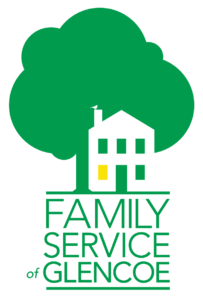National Teen Dating Violence Awareness and Prevention Month by Tara Bagnola, LCSW, FSG Staff Therapist
February is National Teen Dating Violence Awareness and Prevention Month (TDVAM). This is an issue that impacts everyone – not just teens – but also their parents, teachers, friends, and communities. Together, we can raise awareness about teen dating violence and promote safe, healthy relationships.
Dating abuse is a pattern of coercive, intimidating, or manipulative behaviors used to exert power and control over a partner. The National Domestic Violence Hotline reports an estimated 1 in 3 high school relationships involve some sort of physical, emotional, or sexual abuse, and findings from The National Intimate Partner and Sexual Violence Survey (2010) indicate 1 in 5 women and nearly 1 in 7 men who ever experienced rape, physical violence, and/or stalking by an intimate partner first experienced some form of intimate partner violence between 11 and 17 years of age.
Parents are in a unique position to provide support for young people that may be experiencing dating abuse, as well as for individuals choosing to cause harm.
Here some ways you can support your child:
- Familiarize yourself with the potential warning signs of dating abuse (https://www.loveisrespect.org/dating-basics-for-healthy-relationships/warning-signs-of-abuse/) as well as the spectrum of behaviors in relationships (https://www.loveisrespect.org/everyone-deserves-a-healthy-relationship/relationship-spectrum/).
- Model respectful communication, healthy boundaries, and appropriate conflict resolution at home – relationships with parents and primary caregivers teach us what to expect and how we should interact with the people we care about.
- Cultivate a relationship built on empathy, mutual trust, and genuine curiosity about your child’s perspectives and experiences – this creates a safe space for them to access love and support, especially during times of stress.
- Be prepared to listen non-judgmentally, share specific examples that illustrate your concerns, and ask open-ended questions during these conversations.
- Focus on the abusive or unhealthy behaviors rather than the person(s) involved – recognize that your child may still have complicated feelings for the individual that harmed them, and your reactions, while valid, may make it more difficult for them to prioritize their own.
- Avoid lecturing, accusing, and shaming or blaming responses – these reactions are often experienced as a punishment, which negatively impacts trust, discourages honesty, and complicates future attempts at accessing support.
- Decide on next steps together – parents can help identify options that prioritize safety and emotional well-being but should not give ultimatums about the relationship.
This article is adapted by Tara Bagnola, LCSW, FSG Staff Therapist, from Love Is Respect Parent Guide. Additional resources can be found at https://www.loveisrespect.org/wp-content/uploads/media/sites/3/2021/09/Parent-Guide-2021_TAF_love-is-respect.pdf
https://www.loveisrespect.org/wp-content/uploads/2019/01/Parent-toolkit.pdf
